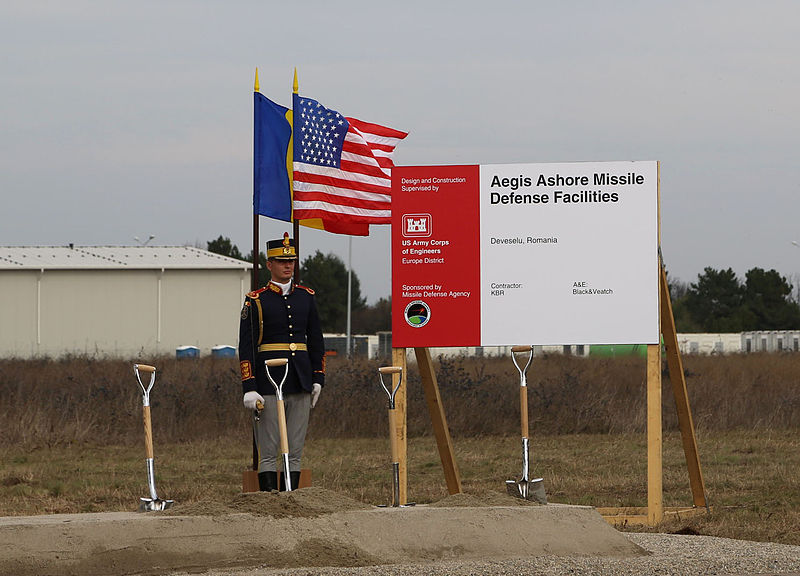Project: Security issues within Serbian 2016 election campaign13May2016
The NATO Missile Shield Base in Romania, Implicit Pressure on Serbia
NATO has activated the missile shield base in neighbouring Romania regardless the opposition from Russia which announced undertaking appropriate countermeasures. This news confirmed ongoing allegations of the growing tensions between NATO and Russia. Moreover, the set-up of this base involved the implicit pressure on Serbia. On Friday, CENTRE put forward the question whether there is room for the security policy based on military neutrality in such international circumstances, while FoNET and Balkan Magazine conveyed its further analysis.
 Among political parties and coalitions that will be represented in the new parliament of the Republic of Serbia there is no agreement, not only about what the security policy of Serbia is, but also regarding the content of military neutrality which appears as the most common orientation of political actors. Parties opt for the neutrality in various interpretations - from the deepened and institutionalized cooperation with NATO to strengthened military cooperation with Russia, according to the latest analysis of the Public Policy Research Centre.
Among political parties and coalitions that will be represented in the new parliament of the Republic of Serbia there is no agreement, not only about what the security policy of Serbia is, but also regarding the content of military neutrality which appears as the most common orientation of political actors. Parties opt for the neutrality in various interpretations - from the deepened and institutionalized cooperation with NATO to strengthened military cooperation with Russia, according to the latest analysis of the Public Policy Research Centre.
"In the case of Serbia, the military neutrality policy is a blank form in which the content is filled by the rulling political elites. However, the right-wing opposition used that empty space and defined neutrality in their own way in the recently completed campaign. In their understanding, the neutrality means non-accession to NATO and close security cooperation with Russia. It is necessary to adopt a new national security strategy as a document that will exactly define what the Serbian security policy is and how it is carried out," said Jelena Radoman, a CENTRE's associate and author of the policy brief entitled "What is the security policy of Serbia?".
New dynamics in the field of security policy will not only be set by new political parties in the parliament (Serbian Radical Party, Democratic Party of Serbia-Dveri) which are against the cooperation with NATO but also by differences within the rulling coalition. While proponets and oponentns of the NATO cooperation are included in the coalition, the only coalition partner which is officialy in favor of joining NATO is the Alliance of Vojvodina's Hungarians (SVM).
As the election monitoring demonstrated, citizens were unable to acquire any meaningful and broader understanding of political parties' positions towards the security policy.
"The political parties have not taken clear positions on a range of security issues such as domestic violence, democratic control of security structures and euro-atlantic integration. The research showed that majority of the coalitons were not formed on clearly spelled out values and ideas. Instead parties sought to improvise and to keep as many possible options as possible," said Svetlana Djurdjevic-Lukic, the director of the CENTRE.
The lack of foreign policy strategy has caused an uncertain and unpredictable security policy of Serbia, which is reflected into the main dilemma which security community belongs Serbia to. This is especially evident in domestic politics recently; there are different values embodied in the understanding concerning the safety of citizens and the institutions that should guarantee those.
The policy brief "What is the Security Policy of Serbia?" is available in Serbian here.
The results of the election monitoring of security issues are accessible here.



